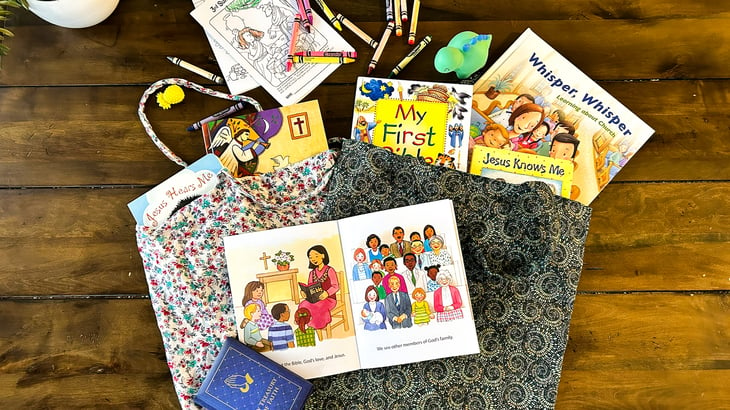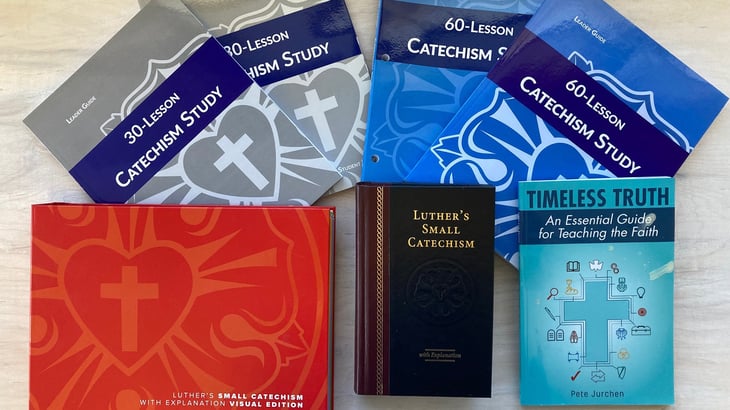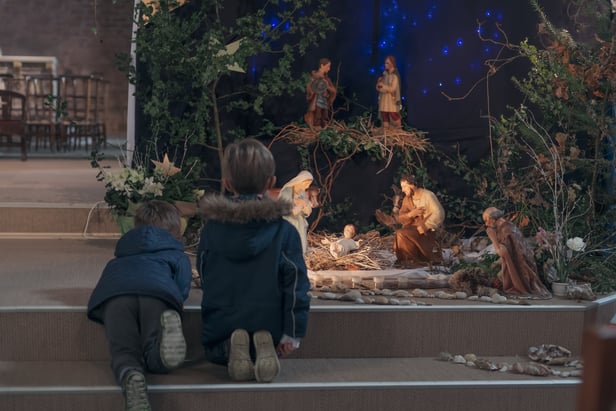Recent Posts by Concordia Publishing House
Essentials for Your Church Busy Bag
Going to church as a family is a blessing. When young children are a part of your family, you need to think ahead when it comes to church. Families with young children may need to ask these questions when preparing for worship: “How do I help my child participate in the service?”; “How do I help them concentrate?”; “What should I do if my child wants to start moving around?”
A popular way churches equip families with young children is by providing “busy bags” or “quiet bags” to keep children engaged during the church service. Rather than putting together a random selection of toys or books, consider these resources, which will also help your child learn about what they are experiencing at church!
5 Resources to Teach Kids about Lent
The season of Lent is a time to reflect on repentance, grow in love, and recognize Jesus’ work on the cross. Lent connects us to the Bride of Christ throughout all time and all places. It is historic. It is personal. However, that doesn’t mean that it is easy to teach! Let’s take a little pressure off of planning and look at 5 books to use during this Lenten season to teach kids what it means that God made us His through Jesus.
Month-by-Month VBS Planning Guide
Vacation Bible School is a great tool for engagement, learning about Jesus, and sharing the Gospel. It is a big undertaking to plan and put together a successful VBS.
VBS 2023 Overview: God’s Living Water
This summer at Vacation Bible School, we’re covered in Jesus’ grace! Our theme for this year, God’s Living Water: Covered in Jesus’ Grace, is inspired by 1 Timothy 1:14, which says, “The grace of our Lord overflowed for me with the faith and love that are in Christ Jesus.” Each of the lessons focuses on biblical accounts that emphasize the Living Water, Jesus Christ. In this post, we’ll break down how to use the curriculum for Vacation Bible School.
A Complete Guide to Using Enduring Faith Confirmation Curriculum
Confirmation is a big step in our church journey. It is meant to prepare believers for future living and learning. But confirmation isn’t just a one-time process; rather, it encourages continual growth and lifelong learning. The Enduring Faith Confirmation Curriculum does just that. Read on to see everything the curriculum offers!
How to Teach Kids Hard Bible Words
When we read with children, we know how to correct their mistakes, but sometimes we don’t know how to help them pronounce, understand, and retain new words. Here are some tips for teachers, parents, grandparents, and anyone else who works with children on how to teach hard Bible words.
5 of the Best Books for Sunday School Teachers
Here are five books about children’s ministry—from early childhood to young adult—that will have you feeling ready to take on your role as a Sunday School teacher!
The Christmas Season as Outreach for Your VBS
As a child, the sounds of bells and Christmas carols, the smells of pine and cookies, and the love of Christ in the air are all things I loved about the holidays. My top three memories of growing up at church were the Christmas service, the Easter service, and Vacation Bible School. Why were these events more impactful to me than any other church service or lesson? It could be that they were all held are during a school vacation, during which I had extra time to spend with family and friends. It could be that these are all times when families in the church come together to celebrate our Savior. Or it could be because all of these events are filled with stories and lessons of who Jesus is and what He did for us. So what does Christmas and the nativity have to do with Vacation Bible School? EVERYTHING! The lessons and stories that are taught during VBS, Easter, Advent, and Christmas will follow children throughout their lives.
Five Roles of the Church Youth Leader
This post is adapted from Connected for Life: Essential Guide to Youth Ministry and was written by A. J. Mastic.
Maybe serving in youth ministry is a new journey for you. Perhaps you trained for this—or maybe you’re a new volunteer and you’re wondering what you’ve gotten yourself into! No matter how you got to this point, what’s important is that as you take your first steps in youth ministry, you do so with an awareness of not only your skills, but your roles. Am I a teacher? chaperone? dodgeball referee? friend? mentor? A good understanding of your roles will help define your work and the nature of your relationships with the youth.
4 Things Your Youth Ministry Needs to Have
How can we teach teenagers to turn to God for help? The first step in doing so is recognizing what teenagers are seeking so we can show them how God meets their needs. All people, including teenagers, need forgiveness, acceptance, community, and endurance. We can use the acronym F.A.C.E. to remember these four things. Let’s take a look at the F.A.C.E. of Jesus and see how these gifts He brings through the Lord’s Supper apply to youth ministry today.




















